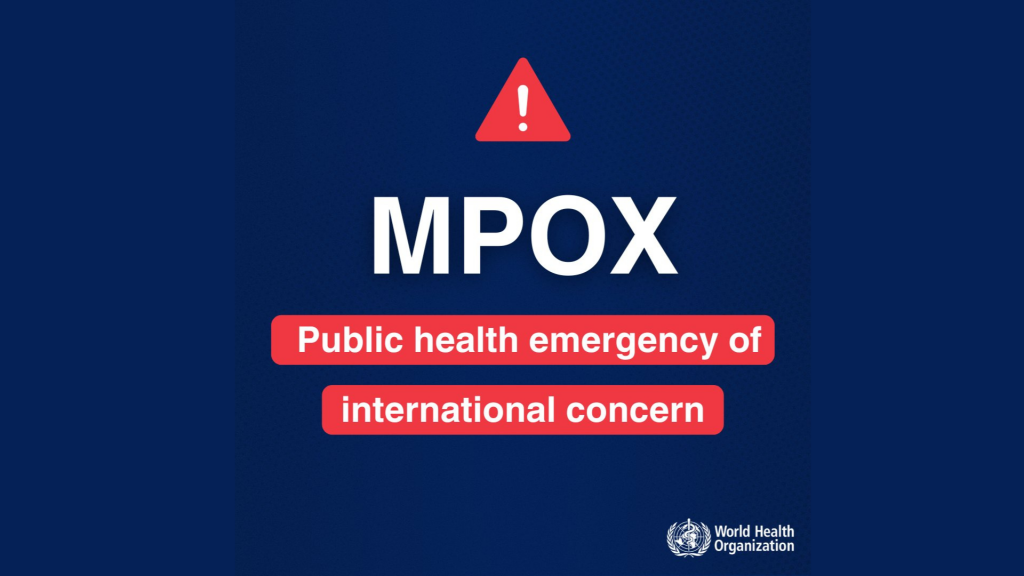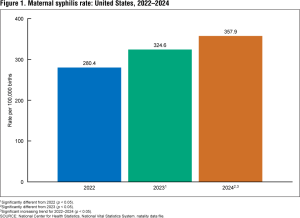The World Health Association (WHO) recently declared a global health emergency amid rising cases of mpox. The current outbreak, which began in the Democratic Republic of Congo (DCR), is caused by a deadlier form of the virus than the one that spread throughout the world in 2022. Cases have been found in at least thirteen African nations. The first cases outside of Africa were recently reported in Sweden in Thailand in men had traveled to the area.
Types of Mpox
Mpox is related to the smallpox virus. Researchers have identified two main types of the virus called clade I and clade II. The worldwide outbreak in 2022 was caused by a clade II type which causes typically mild infections and has a fatality rate less than 1%. Most of the cases in that outbreak were among men who have sex with men.
The current outbreak in Africa is caused by clade I mpox which is more infectious, causes more serious illness, and has a fatality rate around 10%. Clade I mpox is endemic to the DRC, but until recently most cases were passed from animals to humans through butchering and eating. This newest outbreak seems to be caused by a new version of the virus that is spreading from person to person. Scientists are referring to this version as clade Ib.
In some places in Africa, the clade Ib virus appears to be spread between members of a household or through patient care when appropriate protective gear was not available. In these areas a high proportion of cases have been reported in children under the age of 15. In other areas, sexual transmission is most common. This is the first time that clade I mpox has been sexually transmitted, and most cases are being passed through heterosexual sex. Many cases have been observed in sex workers, truck drivers, and other transient workers.
WHO Sounding the Alarm on Mpox
This year, there have been over 17,000 infections and more than 500 deaths from mpox in central and eastern Africa, most of which have been in the DCR. The WHO is sounding the alarm in the hopes of creating a coordinated international response that could prevent this deadlier version from spreading globally. The head of International Health Regulation Emergency Committee put it this way:
“The current upsurge of mpox in parts of Africa, along with the spread of a new sexually transmissible strain of the monkeypox virus, is an emergency, not only for Africa, but for the entire globe. Mpox, originating in Africa, was neglected there, and later caused a global outbreak in 2022. It is time to act decisively to prevent history from repeating itself.”
Mpox in the United States
The Centers for Disease Control and Prevention (CDC) say there is no immediate threat of clade I mpox in the United States because travel to the area is limited, but it is continuing to monitor the situation closely. Anyone who does travel to areas with outbreaks should avoid contact with people who are sick (especially people who have rashes or lesions) and should stay away from wild animals and “bushmeat.”
The CDC has told clinicians to be on the lookout for symptoms of mpox. In the last outbreak, mpox blisters appeared on the genitals and were often misdiagnosed as herpes or syphilis. Clinicians should ask patients presenting with possible mpox symptoms whether they or any of their partners have traveled to DRC or other areas in eastern and central Africa.
It’s also important to remember that there are still cases of clade II mpox in the United States though numbers are far lower than they were in 2022. During the peak of that outbreak there were 11,000 cases diagnosed each month. So far in 2024, there have only been 1,122 cases reported.
Mpox Vaccination
Most of the cases continue to be among people at higher risk for mpox who had not been vaccinated. The CDC recommend the JYNNEOS vaccine for:
- Gay, bisexual, or other same-gender loving men who have sex with men or are transgender, gender non-binary, or gender-diverse AND in the last 6 months have had, or expect to have
- One or more sexually transmitted infections
- More than one sexual partner, or anonymous sexual or intimate contact
- Sex at a commercial sex venue
- Sex in association with a large public event in a geographic area where mpox transmission is occurring
In addition to suggesting everyone who fit these criteria get vaccinated, the CDC has put out mpox-specific safer sex guidelines which remind people that the virus is spread through close face-to-face contact as well as contact with blisters and any fabric that has touched the blisters.
Changes in behavior among gay, bisexual, trans, and other MSM—such as reducing anonymous sex, having less skin-to-skin contact, and washing all bedding immediately—were credited with keeping the virus in check during the major outbreak.
While the risk of a new mpox epidemic remains low in the U.S., recent experiences with pandemics—both COVID and mpox—should remind us that both public health officials and individuals need to should stay informed and prepared.








